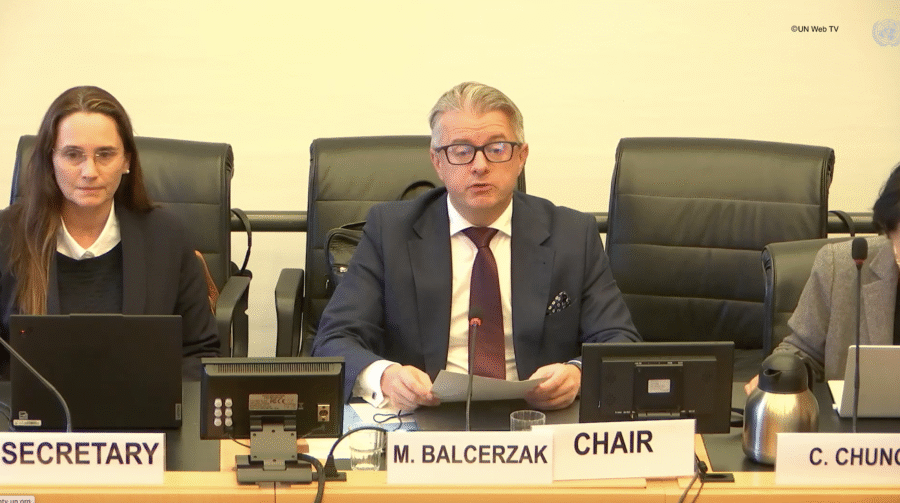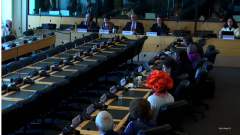Joint Communiqué – 2019 CERD election set a milestone for gender parity
June 28, 2019
Joint Communiqué
2019 CERD election set a milestone for gender parity
Geneva, Switzerland. 28 June 2019
On June 21st, States parties to the International Convention on the Elimination of All Forms of Racial Discrimination (ICERD) voted to renew half of the membership of the Committee (CERD). They elected 6 new experts and re-elected 3 members who were already seating in the Committee, among 14 candidates from all regions.[1]
New members include Ms. Stamatia Stavrinaki (Greece), Mr. Eduardo Ernesto Vega Luna (Peru), Mr. Ibrahima Guisse (Senegal), Ms. Faith Dikeledi Pansy Tlakula (South Africa), Ms. Sheikha Abdulla Ali Al-Misnad (Qatar) and Mr. Mehrdad Payandeh (Germany).
They will join 3 experts whose terms as members of the CERD were coming to an end and who have been re-elected for another four-year period: Ms. Verene Shepherd (Jamaica), Ms. Yanduan Li (China), and Ms. Yemhelha mint Mohamed (Mauritania), as well as the 9 other members of the Committee, whose mandate will expire in 2022[2].
Minority Rights Group International (MRG), the International Institute on Race, Equality and Human Rights (Race & Equality) and the International Movement Against All Forms of Discrimination and Racism (IMADR), congratulate newly elected CERD members and those re-elected.
This year’s election set an important milestone for gender parity within the Committee. With the election/re-election of 6 women, half of the Committee’s seats will be held by women from next year. It was the first time in the history of the CERD that the election led to equal representation of men and women in the Committee.[3] We encourage States parties to continue taking into account of a good gender balance in the CERD’s membership.
On the other hand, there remains a margin of improvement regarding the equitable geographic distribution in the CERD membership. Notably, only one member of the Committee will be from Eastern Europe from 2020. We invite States parties to give a greater consideration to equitable geographic distribution in the CERD membership.
In an effort to promote a merit-based and transparent CERD election process, our three organisations circulated a questionnaire to all candidates on their background, relevant experience and vision of their work as a member of the Committee. Responses received were then posted on a dedicated website: www.untbelections.org, and shared with States parties one month ahead of the election in order to help them learn the qualifications of respective candidates and inform their decision.
Background:
The Committee on the Elimination of Racial Discrimination is composed of 18 independent experts.
Members are elected for a term of 4 years by States parties from among their nationals, consideration being given to equitable geographical distribution and to representation of the different forms of civilization as well as of the principal legal systems, in accordance with article 8 of the ICERD.
Elections are held every 2 years at a meeting of States parties held at the UN headquarters in New York.
The newly elected members will begin their term in January 2020 and their mandates will expire in January 2024.
[1] Overview of the 2019 CERD Election: http://imadr.org/wordpress/wp-content/uploads/2019/06/2019-CERD-Election-Results.pdf
[2] Mr. Albuquerque E. Silva (Brazil), Mr. Amir (Algeria), Mr. Bossuyt (Belgium), Ms. Chung (Republic of Korea), Mr. Diaby (Côte d’Ivoire), Ms. Izsák-Ndiaye (Hungary), Ms. Ko (Japan), Mr. Kut (Turkey) and Mr. Yeung Sik Yuen (Mauritius)
[3] In April 2019, Ms. Verdugo Moreno (Spain) replaced Mr. Marugán to serve the remainder of his term until 19 January 2020.





